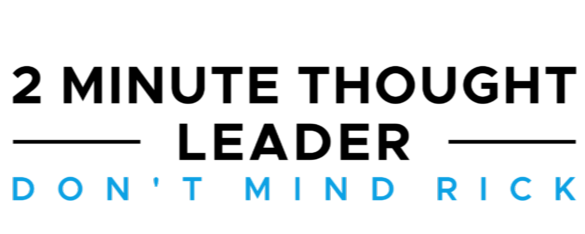The Truth Doesn’t Change

How many legs does a dog have if you call the tail a leg? Four. Calling a tail a leg doesn’t make it a leg. — Abraham Lincoln
No matter how you spin it, the reality remains unchanged. You can dress up a tail with the "leg" title, but it will never help the dog walk. And yet, how often do you fall into the trap of relying on labels to shape your understanding, decisions, or self-worth?
The Power—and Problem—of Labels
Labels simplify the world. They help us categorize, communicate, and process information. But labels also distort. They lead us to mistake perception for truth and encourage us to accept what feels comfortable rather than confront what's real.
You might call a decision "bold" when it's reckless. You might describe a team's dynamic as "collaborative" when it's closer to polite avoidance. These labels don't change the underlying reality—they only cloud your ability to address it effectively.
Why Facing Reality Matters
Reality is non-negotiable. Pretending otherwise wastes time, resources, and trust. If you call the tail a leg, you might convince yourself the dog can do something it can't—like run faster or carry more weight. Similarly, mislabeling challenges or strengths can lead to poor decisions in your personal or professional life.
The solution? Ruthless honesty. As a leader, friend, or colleague, commit to seeing things as they are, not as you'd like them to be. It's uncomfortable, but the rewards are immeasurable: better relationships, more thoughtful decisions, and lasting trust.
The Courage to Correct Labels
Correcting a label requires humility. It means acknowledging that what you thought—or what you sold to others—was inaccurate. But there's power in this vulnerability. When you reframe your understanding to match reality, you open the door to genuine growth.
In conversations with others, this might mean clarifying what a situation entails instead of spinning a more flattering story. In self-reflection, it could involve asking tough questions about whether your actions align with your values—or just your ego.
Build a Practice of Reality-First Thinking
You can't stop the world from using labels, but you can commit to being conscious of their limitations. Here's how:
- Pause and examine the labels you use. Are you calling something a "success" when it's merely unfinished? Are you labelling failure as "progress" to avoid discomfort?
- Seek outside perspectives. Ask others how they view the situation, and be open to their truths.
- Look for the results, not the rhetoric. A tail called a leg still won't help the dog walk.
Acknowledge what is rather than what you wish it to be, and you'll set yourself up for important decisions and lasting impact.
